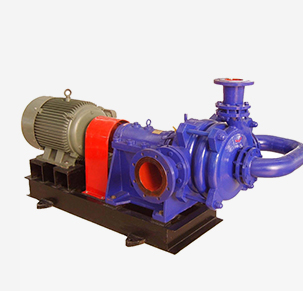Uighur
- Afrikaans
- Albanian
- Amharic
- Arabic
- Armenian
- Azerbaijani
- Basque
- Belarusian
- Bengali
- Bosnian
- Bulgarian
- Catalan
- Cebuano
- Corsican
- Croatian
- Czech
- Danish
- Dutch
- English
- Esperanto
- Estonian
- Finnish
- French
- Frisian
- Galician
- Georgian
- German
- Greek
- Gujarati
- Haitian Creole
- hausa
- hawaiian
- Hebrew
- Hindi
- Miao
- Hungarian
- Icelandic
- igbo
- Indonesian
- irish
- Italian
- Japanese
- Javanese
- Kannada
- kazakh
- Khmer
- Rwandese
- Korean
- Kurdish
- Kyrgyz
- Lao
- Latin
- Latvian
- Lithuanian
- Luxembourgish
- Macedonian
- Malgashi
- Malay
- Malayalam
- Maltese
- Maori
- Marathi
- Mongolian
- Myanmar
- Nepali
- Norwegian
- Norwegian
- Occitan
- Pashto
- Persian
- Polish
- Portuguese
- Punjabi
- Romanian
- Russian
- Samoan
- Scottish Gaelic
- Serbian
- Sesotho
- Shona
- Sindhi
- Sinhala
- Slovak
- Slovenian
- Somali
- Spanish
- Sundanese
- Swahili
- Swedish
- Tagalog
- Tajik
- Tamil
- Tatar
- Telugu
- Thai
- Turkish
- Turkmen
- Ukrainian
- Urdu
- Uighur
- Uzbek
- Vietnamese
- Welsh
- Bantu
- Yiddish
- Yoruba
- Zulu
Telephone: +86 13120555503
Email: frank@cypump.com
نويابىر . 28, 2024 07:37 Back to list
Cost Analysis of Sewer Ejector Pumps for Residential and Commercial Use
Understanding the Cost of Sewer Ejector Pumps A Comprehensive Guide
Sewer ejector pumps play a vital role in residential and commercial plumbing systems, especially for properties that are situated below the level of the municipal sewer line or where gravity drainage is not feasible. These pumps are designed to lift sewage and wastewater from lower elevations to higher elevations, ensuring proper disposal and preventing backups. While they are essential for proper sanitation, understanding the cost of sewer ejector pumps, installation, and maintenance is crucial for homeowners and businesses alike.
Factors Influencing the Cost of Sewer Ejector Pumps
1. Pump Type and Capacity The cost of sewer ejector pumps varies significantly based on the type and capacity required. Residential ejector pumps generally range from 1/2 horsepower to 1 horsepower. The capacity determines how much wastewater the pump can handle; thus, larger capacity pumps tend to be more expensive. A standard 1/2 horsepower ejector pump might cost between $300 to $600, while a more powerful unit can exceed $800 to $1,200.
Understanding the Cost of Sewer Ejector Pumps A Comprehensive Guide
3. Installation Costs The cost of the pump itself is only one part of the total expenditure. Installation costs can vary widely based on your locality, the complexity of the installation, and existing plumbing conditions. On average, homeowners should budget between $500 and $1,500 for installation by a licensed plumber. This may include necessary modifications to plumbing systems, electrical work, and ensuring that the pump is compliant with local plumbing codes.
sewer ejector pump cost

4. Additional Accessories When installing a sewer ejector pump, additional components may be necessary. These can include check valves, discharge pipes, float switches, and additional electrical components for proper operation. Depending on the specific needs, these accessories can add several hundred dollars to the total cost.
5. Ongoing Maintenance Costs Regular maintenance is essential for ensuring the longevity and efficiency of your ejector pump. Routine checks and services might cost between $150 and $300 annually. Neglecting maintenance can lead to costly repairs or the need for premature replacement, which underscores the importance of budgeting for ongoing care.
6. Pump Failures and Repairs Like any mechanical device, sewer ejector pumps can fail. Common issues include clogging, failure of the float switch, or motor burnout. Repairing these issues can range from $100 to $500, depending on the extent of the problem and the parts needed for replacement. Having a contingency fund set aside for unforeseen repairs is a wise approach for any property owner.
Conclusion
Investing in a sewer ejector pump is a significant expense, and understanding the various factors that contribute to its total cost is essential for making informed decisions. Evaluating the type of pump necessary for your specific situation, considering quality and brand, and accounting for installation and maintenance costs provides a clearer picture of the financial commitment involved.
Homeowners should remember that while upfront costs are important, the long-term expense of repairs and maintenance, as well as the benefits of reliable wastewater disposal, make sewer ejector pumps an indispensable part of modern plumbing systems. Proper research and consultation with plumbing professionals will help mitigate unexpected costs and ensure that your sewer ejector pump serves its purpose effectively for years to come.
-
Heavy-Duty Mining Sludge Pumps - Wear-Resistant Slurry Handling
NewsAug.02,2025
-
Horizontal Split Case Pump with GPT-4 Turbo | High Efficiency
NewsAug.01,2025
-
ISG Series Pipeline Pump - Chi Yuan Pumps | High Efficiency, Durable Design
NewsAug.01,2025
-
Advanced Flue Gas Desulfurization Pump with GPT-4 Turbo | Durable & Efficient
NewsJul.31,2025
-
ISG Series Vertical Pipeline Pump - Chi Yuan Pumps | Advanced Hydraulic Design&Durable Construction
NewsJul.31,2025
-
ISG Series Vertical Pipeline Pump - Chi Yuan Pumps | Energy Efficient & Low Noise
NewsJul.31,2025










